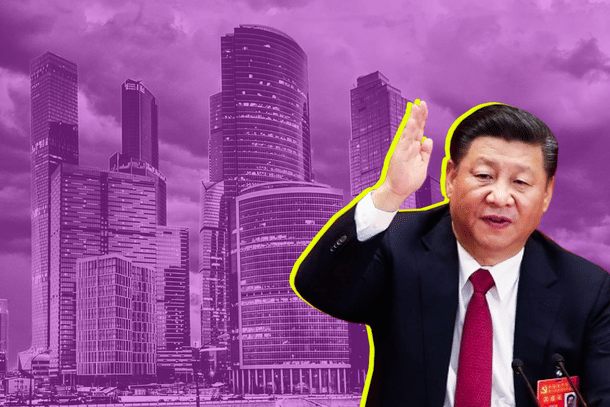Infrastructure
Explained: How China Is Trying to Salvage Its Embattled Real Estate Sector
Business Briefs
Feb 24, 2023, 04:01 PM | Updated 04:01 PM IST
Save & read from anywhere!
Bookmark stories for easy access on any device or the Swarajya app.


The Chinese real estate sector has been in the doldrums for quite some time after developers defaulted on debts. In addition, the draconian lockdowns combined with a crackdown on businesses across sectors like technology, finance, and real estate have caused investors to become cautious about China.
The Chinese government is now making amends for its actions by ending lockdowns and going easier on companies where it appears to have taken shadow control. In the latest move, the government has allowed private equity funds to buy into real estate.
Why Did the Real Estate Trouble Start?
Chinese real-estate developers have helped to urbanise China rapidly but used excessive debt to fund their projects. These funds were raised right from institutional investors to the commoner. Since property prices were on an upward spiral, and getting credit was easy, the Chinese real estate market boomed for years.
In fact, some of these companies overbuild – leading to the formation of “ghost cities” – large residential areas with multiple empty buildings since no one was willing to buy flats. However, the Chinese government became wary of the enormous debt that these real estate developers held on their books and introduced a “Three Red Lines” policy in August 2020.
The financial regulatory guidelines prevented developers who breached the limits from obtaining more debt. It also came out with guidelines to prevent irregularities in fundraising.
The measures effectively stopped some of the most indebted companies from raising more funds through loans. Since real estate projects have a long gestation period and only make money once flats are sold, developers depend on loans to finance the construction and pay employees and vendors.
The closure of funding sources meant that these companies didn’t have money to pay their employees and creditors and also couldn’t complete ongoing projects.
Unsurprisingly, the public’s interest in real estate has waned, and so has lenders’ interest. Investments in the Chinese real estate markets fell by 10% last year – something that hadn’t been seen for a long period of time. Foreign investors have been making a run for the exit, and bonds denominated in the local currency have seen a rapid sell-off by foreign investors.
How Will PE Funds Prop Up The Market?
The China Securities Regulatory Commission (CSRC) announced the launch of a pilot program that would allow investors to create fixed-asset Private Equity funds to invest in residential real estate, commercial estate, and infrastructure projects.
The Chinese government probably expects these funds to support real estate projects and indirectly help real-estate developers in the country. These funds are allowed to invest in residential assets that are rental, under-construction or affordable homes.
While PE funds might not directly come in as investors or lenders to the developer firms, if they buy under-construction homes, they would provide immediate cash to the developer, who can then use that money as funding.
By usual fund standards, the threshold for starting a fund has been kept low at around $ 4 million while allowing foreign investors to participate through Qualified Foreign Limited Partnerships. Clearly, the government is looking at all possible ways to prevent fallout.
Nearly 70 per cent of Chinese household wealth is invested in real estate, accounting for almost 30 per cent of the Chinese GDP.
Apart from the tech crackdown, the decline in the real estate market is the main factor behind lower expectations of Chinese economic growth in the near future.
Informally, local officials have been goading local banks to lend to real estate companies. This is because land sales to real estate developers make a huge chunk of revenues for local administration. Weakness in the real estate markets would mean that they couldn’t meet their revenue collection targets.
Will These Measures be Enough?
In the month of January, real estate prices fell by 2.26 per cent when compared to the last year. For years, homeowners had been accustomed to seeing quick price appreciation, which led to the practice of flipping houses for quick profits.
Regaining investor confidence looks quite difficult for the Chinese government after a series of actions that have been termed “authoritarian”.
Chinese real estate might still not be “cheap”. Rental yields have been quite low in the urban areas of China, standing at 1.2 to 1.4 per cent. This might make investing in Chinese real estate an unattractive proposition for most investors at a time when interest rates are not ultra-low anymore.
Also read: Xi Jinping’s Not-So-Grand Plan To Rescue China’s Real Estate Sector





